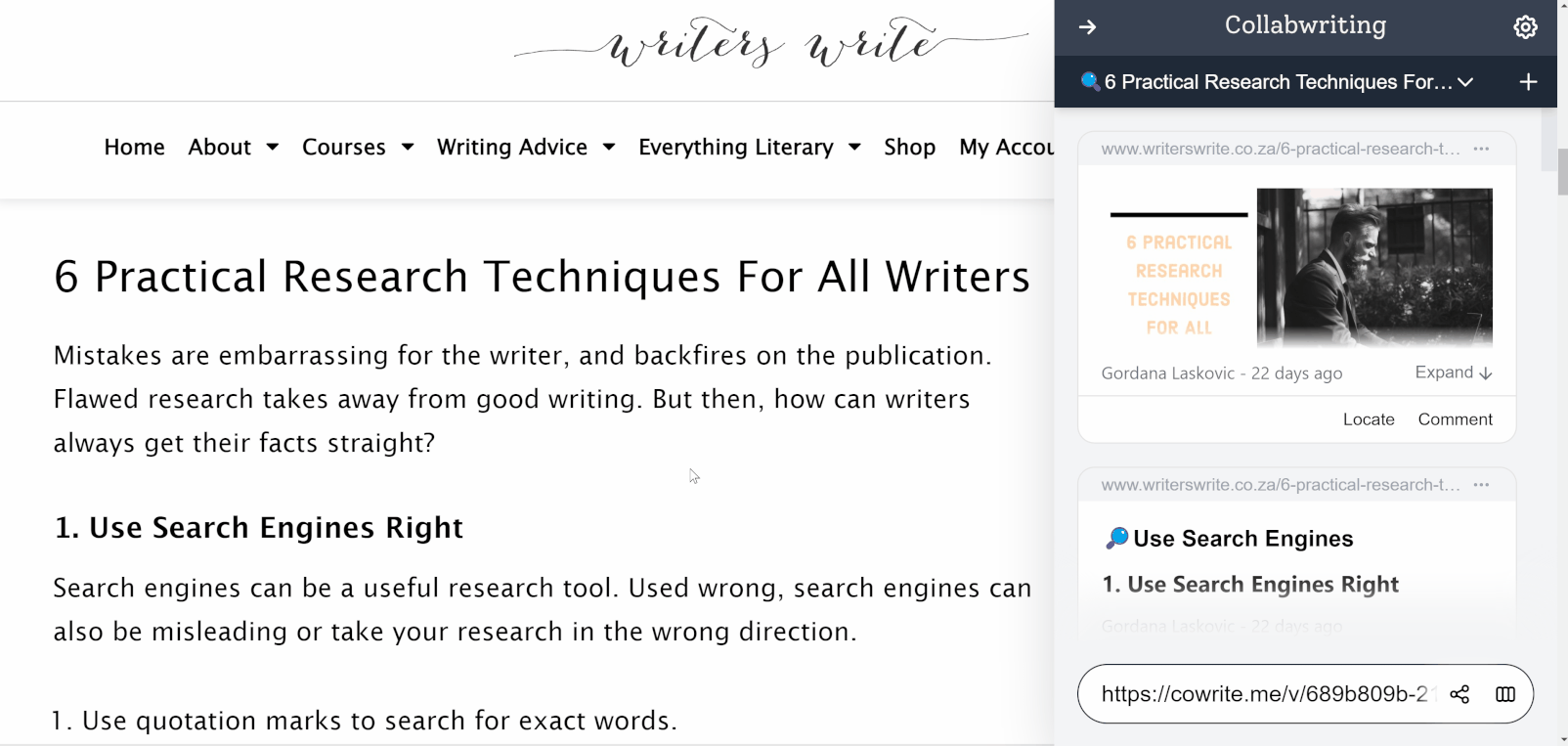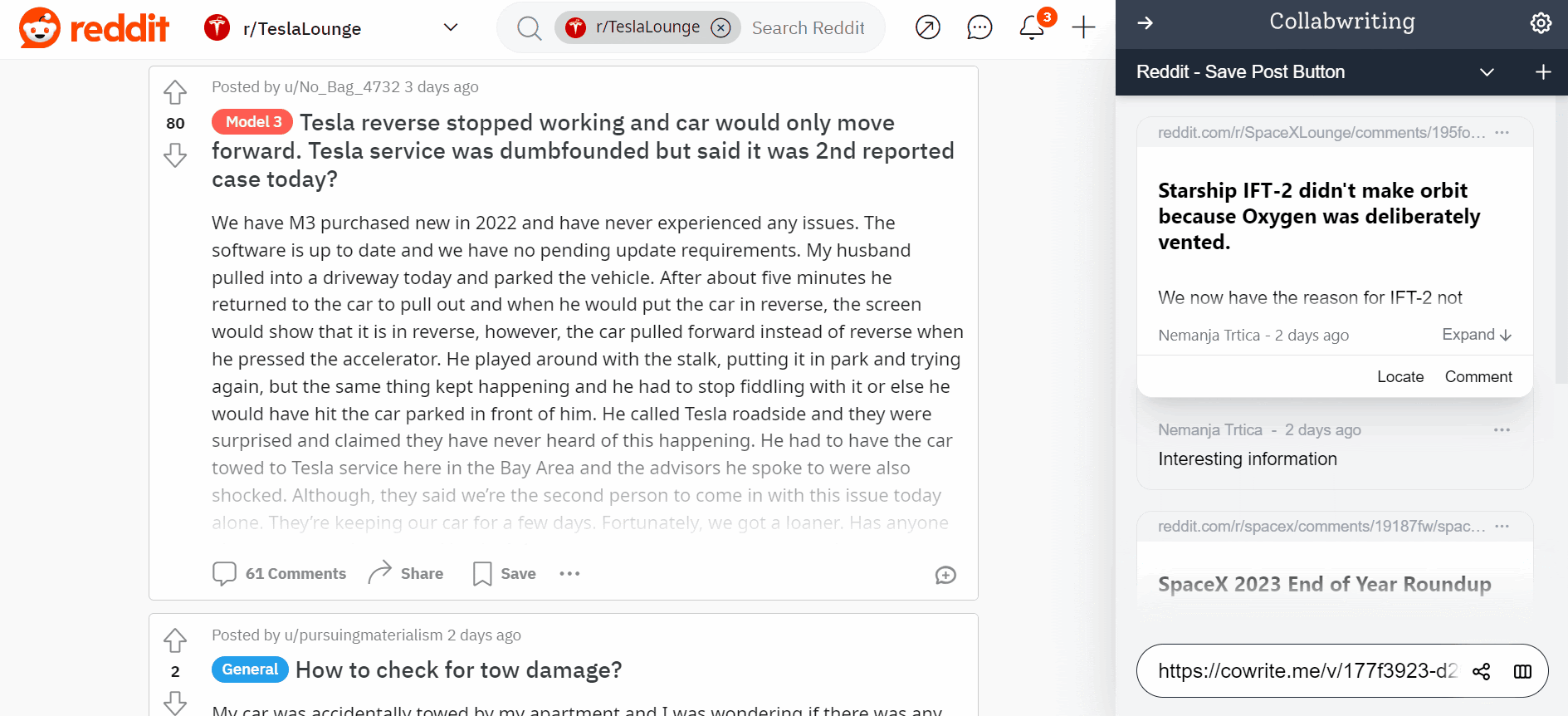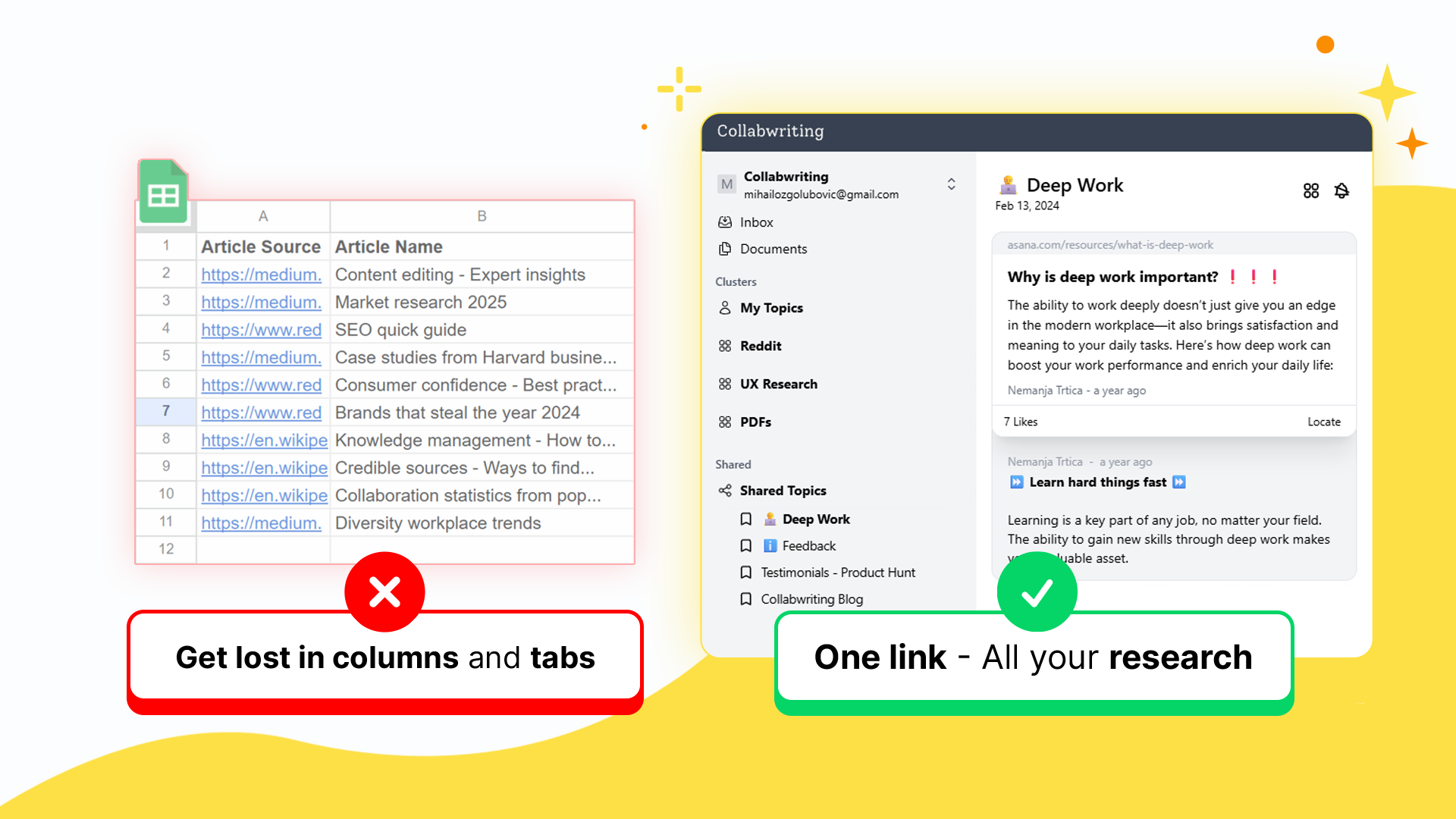In the last few years, everyone's been talking about content marketing – it's become a go-to strategy for brands to connect with their audiences.
But here's the thing: not every piece of content is trustworthy.
To make people really trust what you write, you should make things simple yet reliable. In other words, to establish credibility you have to understand your audience, use reliable sources, and tell attention-grabbing stories bolstered by content research.
Why establishing credibility is important?
Establishing credibility certainly is not an easy task.
It’s the key to gaining trust and authority in any industry. It's the foundation for solid relationships with customers, partners, and stakeholders. When people see you as credible, they're more likely to trust what you know and recommend. And that trust can translate into more sales, partnerships, and recognition in your field.
Moreover, if people see you as a thought leader through insightful industry articles, it adds to your authority. Establishing credibility means keeping your promises, being clear in your actions, and is crucial for staying ahead in your field and being seen as a trustworthy leader.
The benefits of establishing trust and authority through content research
When you're looking for content ideas, inspiration can come from various sources. If you have a general topic in mind but lack specific content ideas, content research is the key. It helps you gather information and generate creative concepts for your content.
However, the concept of content research does more than just give you topic ideas.
It ensures you create content that builds credibility and meets your marketing goals, whether it's boosting web traffic or establishing brand authority.
Being trustworthy and authoritative in your industry is beneficial because it makes people see you as a reliable source of info. This, in turn, makes customers more
likely to choose what you're offering.
Here are 7 effective techniques to boost your content's credibility
Cross-referencing multiple sources
Cross-referencing is the first step in verifying information. Relying solely on one source may lead to biased or incomplete perspectives.
This involves checking multiple sources and comparing the information presented to identify inconsistencies or differences. If multiple reliable sources confirm the information, credibility increases.
Additionally, cross-referencing allows us to gain different perspectives on a topic, enabling a more holistic understanding.
Expert interviews and citations
Another effective way to verify information is by seeking out expert interviews and citations. When researching a specific topic, look for articles or publications that cite credible experts in the field. Expert opinions can lend credibility and provide valuable insights.
Reach out to subject-matter experts directly, if possible, to clarify any doubts or obtain additional information.
Evaluating the website's domain
The domain of a website can provide valuable insights into its credibility. Look for domains that represent established institutions, organizations, or trustworthy sources.
Government websites, academic institutions, and reputable news organizations are examples of reliable domain sources.
On the other hand, unfamiliar or obscure domain extensions can be a warning sign. Websites with domain extensions that mimic well-known sources but have slight variations should be approached with caution.
Back up your content
When you're suggesting something to your audience, back it up with examples that back your point. Share experiences from working with clients or mention relevant case studies.

Establishing credibility through content research: Key steps
Here are key steps for effective content research:
- Conduct online research with Google
- Perform keyword research for SEO
- Check out what your audience is asking
- Search through online communities and groups (Quora, Reddit, LinkedIn, etc)
- Take a look at your competitors
- Research trends and seasonal topics
- Discover how Collabwriting fits into your content marketing strategy
Conduct online research with Google
Using Google for content research is pretty straightforward.
Here are a couple of ways:
- Use quotation marks to search for exact words.
- Prefer authoritative sources above informal results.
- Always verify one source with another, even if #1 ‘seems’ correct.
- Use advanced features for a refined search (for example, specific dates or domains).
- Autocomplete feature: When you start typing, Google suggests queries. These can be great content titles. Just tweak them a bit to fit your goals.
- "People also ask" section: Check this for more specific, question-based searches. The suggestions here can spark content ideas aligned with your objectives.
- "Related searches" section: Find related searches at the bottom of the results. Handpick ones relevant to your topic for content inspiration.
- Search results: Check the actual results. Look at the top 10 and see common themes. Identify these to boost your chances of ranking higher.

Perform keyword research for SEO
Keyword research is like finding out what topics really matter to people and how much your audience cares about them.
When you look into keywords for their purpose, popularity, and how often they're searched, you can answer the questions that most of your audience is curious about.
It's a way to connect with what people are interested in.
Check out what your audience is asking
Understanding your audience is crucial, yet often overlooked, when it comes to content research.
Creating effective content means tapping into what your target audience desires, their goals, frustrations, pain points, and fears.
Here are two simple ways to get to know your audience better:
- Check out your competitors
See what your competitors are doing well and not so well. Understand how they're reaching the shared audience and what resonates or doesn't with them.
- Keep an eye on feedback and engagement
Pay attention to what your audience is saying. Collect feedback through surveys and online forms. Also, monitor comments and engagements on your website, blog, social media, and customer support. This gives valuable insights into what your audience cares about.
Search through online communities and groups (Quora, Reddit, LinkedIn, etc)
Even though social media and online communities might not seem like content research goldmines at first, they can be incredibly useful with the right approach.
Take a quick scroll through Reddit or LinkedIn, for example. What do you see?
People seeking answers! 👀
By doing this, you get a unique glimpse into what challenges your target audience is facing.
And hey, don't forget about Quora – it's another helpful place to explore.
Just a bit of light reading on these platforms can uncover valuable insights for your content strategy.

Take a look at your competitors
Look at success stories like Alando mimicking eBay or Xiaomi following Apple's footsteps. Google Home took on Amazon Echo and dominated the home-assistant market.
See the pattern?
We're not suggesting you copy-paste your competitor's content strategy to climb the search engine ranks. Google really hates that.
But here's the deal: while doing your content research, keep an eye on what your competitors are doing. Understanding what works in your niche helps you figure out the type of content your audience loves.
It's not about copying - it's about gaining insights.
How can we help with this?
To make killer content, it's not just about understanding content research or applying the tips we mentioned. It's about going above and beyond.
Take it a step further.
Try Collabwriting
It allows you to gather all your online sources in one place. Just highlight, save, and collaborate with anyone on any content you find online.
Key features:
- A centralized place for all collected sources
- Save any quotes, ideas, and references
- Create a sharable and searchable system
- Receive feedback and collaborate with your team and clients
Streamlined research process
- Use topics, clusters, and hashtags to create a structure
- Share your research with anyone and start collaborating
- Or export your notes to create blogs and white papers
Additionally, there's an AI Research Copilot that saves you hours of googling. It collects data, ideas, and references, improving with each search based on your feedback.







![Best Research Collaboration Tools in 2025: Zotero, Paperpile & Collabwriting [Compared]](/content/images/2025/07/image--7--1.png)







